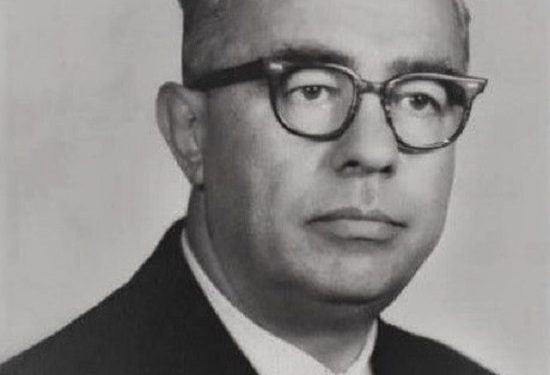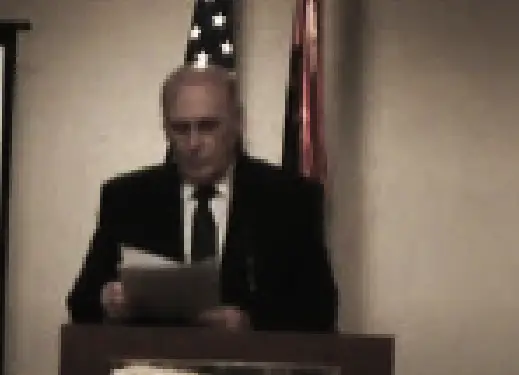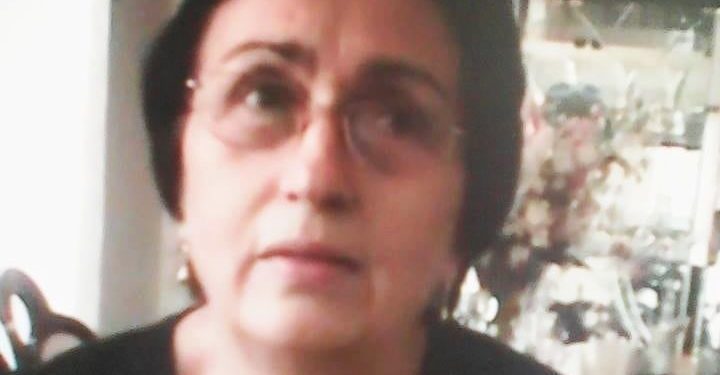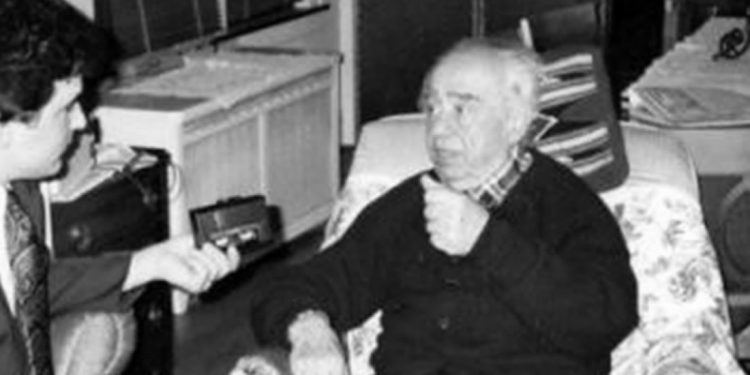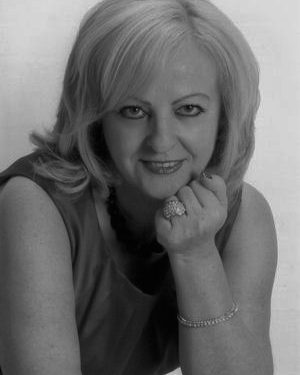By Keze Kozeta Zylo
Memorie.al / Jadigjar Luzaj, politically persecuted since the age of 6 months, as he came from the well-known nationalist tribe, Agaj, from the district of Vlora, where most of them joined the ranks during the War period, 1939-1944 of the nationalist organization “Balli Kombëtar”, which caused some of them to leave Albania in November 1944, to escape the revenge of the communists who had just come down from the mountain and came to power. One of those who left the homeland was Jadigjar’s father, which caused him and his entire family to be persecuted by the communist regime of Emver Hoxha and his successor Ramiz Alia, until 1990, where after after the event of the embassies, he and other family members left Albania, settling first in Italy, and then in the USA, where they still live today. For this, entire etc., Mr. Luzaj knows us in the interview that we are publishing in this article.
Mr. Luzaj, could you please tell us about your family and how you experienced your childhood in Albania?
Mrs. Zylo, first of all I would like to thank you for your interest in me and my family. My life is the same as that of hundreds and thousands of children of the generation of 1944, who were orphaned or semi-orphaned like me. I was born with bad luck for myself and the country. The father, after the brutal communist dictatorship came into force in November 1944, with his two first cousins, Professor Isuf Luzaj and his brother, Ifraim Luzaj, left the homeland. At that time, I was only six months old. Since then, the ordeal of our sufferings began.
Your father escaped, what happened to the family members who could not leave Albania?
Almost all the older ones ended up in prisons, from grandfather to uncles. My mother and I, when only my grandmother and two aunts remained at home, we had to go live with my mother’s brothers in Kania. The state of the communist dictatorship nationalized everything, and left us very little land to feed on. I did three years of primary school with my uncles, until my grandfather got out of prison. In 1954, I went to Vlora with my mother.
Grandfather had built us a hut in the yard of our houses, because Gaqo Nesho’s secretary (the first secretary of the Vlora District Party Committee) lived there with her family. There, with the salary of my mother, a worker with 4,300 ALL, I had to spend my entire childhood, until I graduated from high school in 1962. Although we lived in the city, I studied by candlelight. Because of the good results, when the dictatorship and the class war fell somewhat, I was given the right to study physics, just like many other persecuted children.
Did you practice your profession after finishing your studies?
Immediately after finishing my studies, I was appointed to Vlora by the Ministry, but Vlora left me without a job. The reason was known, bad political conditions. They gave me work sheets three times, for an electrician, but I was never accepted for work. This was one of the most difficult periods for me, during this time my mother continued to feed me. When I finished university, we persecuted people were not sent to three-month camps, like everyone else, but to two years of military service. I did only a month and a half and was released, since in 1965, I had passed a pulmonary concession, and I was admitted to the Sanatorium. So, after I went to the military hospital, I was released and escaped the military farm, in Kakruk of Skrapar.
What were the horrors that you felt and saw with your own eyes?
After I left the military hospital, I was asked to go as a teacher in Zhep t Skrapar, because there was a need for a teacher. I remember the six-hour journey, through the mountains of Skrapar, in Gryka e Dëvriu. I got a big snow, which reached up to my waist, from Çorovoda and all the way to Djerba. I was accompanied by the postman of that area. With an umbrella and a suitcase, I arrived in Djerba and, a day later, in Zhep.
Zhepi was two and a half hours away from Gjerbes, after crossing the Tomorrica River. In that harsh area, where you could see the sky for a penny with your eyes, (as a persecuted Gyrocastrian teacher says), I started working as a teacher. There I found the generous hospitality of the Skrapallie families, and the love of the students, who were more miserable than “Migjen’s flowers”. They were beautiful faces, but pale from bad food. Their open shoes appear before my eyes, they looked as if they were going to bite the teacher. Clothes with so many dreams, there was no place for even a dog to bite them.
There, in Djerba, I met my persecuted teacher and friend, Xenofon Dilon, and a very noble old man in his 80s. The old man, half bent over, had left for emigration, from 1900 to 1912, in Turkey. Then, he went to America, until 1930, when he returned to Albania. I am mentioning this old man, for his two historical stories: He and some young Albanians had welcomed Ismail Qemali with applause in 1911, and he had told them: “Don’t clap, guys, because we haven’t done what we what is still needed for Albania” and that even today what is needed for Albania has not yet been done.
While Abdyl Frashëri, the old man said, when he went to Bismarck, the latter asked him: “There are many learned people like you in Albania”? And Abdyli answered: “Yes”! While Bismarck told him: “That nation wants 100 years of slander and 100 years of education and knowledge, without entering the ranks of the nations”!
How long did you stay in Zhepa?
I stayed there until the 1969-70 school year, when I was transferred closer, to the village of Kakruk, between Çorovoda and Poliçan. This was done to me, for the sake of the respect I earned from the people of Zhepa, and from the head of the Education Section of Çorovoda. Kakruka, it was lucky for me, because I got engaged, and realized one of my beautiful dreams. I found the most ideal person in life, who I would not compare, not even with a member of the Central Committee, or of the Parliament, the son of a prisoner sentenced to be shot, who, due to lack of facts, was returned with life imprisonment. She met her father through the bars of the Burrell prison.
He had been a political envoy of the “National Front” for the Vlora River area, with the nickname “Besniku”. He was Neim Sheka, from Smokthina. After prison, he was interned in Smokthina of Vlora, in Bashaj. My wife, Engjëllushja, is also the granddaughter of the famous Agaj family. She was adopted by her aunt to continue her schooling in Durrës, where I saw and knew her for the first time. On the first day when we got engaged, I wanted to tell her two things, while she interrupted me: “I don’t need it, I know everything.” She was smart, wise, and very resourceful. She has been faithful to me step by step, she has never left me, which was the main reason I escaped prison.
What about you, were you interned?
I escaped internment in 1965-’67, because I was a student and sick. And the mother, as an old woman, was not touched. They interned only my uncles, with their families, and my cousins, the Professor’s children. But I, the biggest persecution, I had since 1973, when I was fired with the motivation to work as a worker in a suburban enterprise, Bonifikim, and precisely in the quarry, for 17 consecutive years, until 1990. When my friends saw me coming home from work, they called me “Jean Valjean,” like the main character of Hugo, whose works I always read. That’s how I felt most proud. I was not sorry that I did not practice my profession. I was satisfied that I had acquired knowledge and culture, to live life.
When you started your family, did you think that one day you would realize your dreams for your children?
For this, a first motivation in life was already in the fifth grade, a statement of the Great Russian academic, Micurin, who said in the text of Nina Potapova: “Mej nje mozhjem, zhdat millostiej ot prirodi, nasha zadash, zjatu njejo “. That will say: “We should not expect alms from nature; our duty is to take it from her”. Me and my friend. we lived in very difficult conditions. She in the cement factory with three shifts, and I in the quarry. We created a troubled but happy family. With grandmother and mother, and aunt that a year before her husband was released from prison (after 14 years), he fell from the olive tree and became paralyzed. God gave us three children, two daughters and a son, who are compensation for our happiness. Our dream has always found no rest, it has continued through numerous and continuous sacrifices.
Where did the overthrow of the dictatorship find you and how did you experience the overthrow of the dictator by the people and your class?
The overthrow of the dictatorship found us in Italy. Starting after the event of the embassies in July 1990, with the issuance of passports, we tried to run away, with the exception of our grandmother who was 100 years old. But, someone had spied on us, and the Security returned us, telling us that half of the family could run away (under our pretext of meeting uncle and father in Italy) and after half returned, the other half could go. After a week, I ran away with my two older children and my uncle, with a hostage in my heart, leaving behind my mother, wife, and little six-year-old daughter, Blerina.
Without losing hope that I knew my friend well, I took the ferry from Otranto to Otranto, and the next day I arrived in Venice by train. I had $100 with me that you had given me to a cousin. The woman, with 80,000 (old) ALL that I had left her and with her dexterity, came after me after some time. She gave the money to a friend of her uncle, to enable the arrival, without the knowledge of S State Security. Only two trusted people knew about the woman’s escape, her brother and a cousin, from Agaj. Two days after our arrival in Italy, the other half arrived in Brindisi. The woman met her uncle in Lecce, and joined us in Mestre, where we lived for five and a half months.
The Italians were very humane and helped us. They found us a house and a job for me and my girlfriend. In Italy, we experienced the fall of the dictator’s bust with tears of joy. There we saw that the languishing dictatorship was falling, we were gaining a great thing: freedom. Even Aesop dreamed of it. It’s not a little. But for our nation to be put on a good path, it will take time. America is a great nation that has seen a terrible civil war.
Its two generals, North and South, shook hands and said; we will make America, and they did. They did not call anyone a traitor, and called all of them martyrs of the nation. There is no public holiday for this, they only have Independence Day. We in Albania want two holidays. We forget that what unites us is November 28 and what separates us is the 29th. The latter did not give us freedom, it gave us dictatorship, slavery, half of the Albanians escaped, exiled, shot, or imprisoned.
Under what circumstances did you meet your father and can you tell us some of your memories of the time you lived with him?
We left Italy on March 5, 1991, the day of the great exodus, with the help of the Italian authorities, without guarantees. The father did not dare to give us a guarantee, because he had remarried and his wife was a person, not kind to us. And for this, I informed my father when I was leaving Fiumicino, Rome Airport. After we arrived in America, he hosted us in Sarasota, Florida and we lived with him for two or three weeks. Afterwards, we went to Clearwater, where my friend’s uncle, Daver Agaj, helped us.
Dave found us a house to rent and a job in a restaurant. We had saved enough money in Italy to start a life. The restaurant was Albanian, because we didn’t know a word of English. Our main priority was children’s education. Blerina started first grade, for which she spent a week in Albania and three months in Italy. The son, Gentiani, continued high school. The eldest daughter, Enkeleida, entered college. In Florida, we lived from 1991-93, and later moved to Michigan with better jobs, schools, and income.
My father said to me one day on the phone: “I ruined it in old age, but I know that you will walk, that you have a good, healthy family and a good wife and mistress.” And so it happened. The two older children finished their studies at the University of Michigan, the younger at Wayne State University. We continued working until we retired in 2008. The children were employed around the US capital area, with good jobs. They married Albanians and Albanians. Enkeleida and Blerina each have a daughter, Emma and Alba.
And the boy has a son and a daughter, Andy and Sarah Shqiponja. These have removed our stress, give us joy, and we live happily in the country of God, without forgetting our Motherland. In 1993, I took my father to Albania, and he met his own mother. She passed away in 1996, and her father a year later, in 1997. He didn’t get to visit us at the first house we bought in Grosse Pointe Park, Michigan.
You are the nephew of prof. Isuf Luzaj, a polyhedral intellectual figure. How much has your uncle influenced your life and do you hope that one day, all the important national intellectual figures will be given the place of honor in the homeland, since so far history continues as before, very truncated?
We have communicated with the Professor since in Albania, and my friend replied with a long letter, where she said: “If you are the daughter of the one I knew, Neim Shekës, you are really a daughter of Laba, brave and smart”. The professor and the father loved the Angel very much. We are proud of uncle. An opponent in debates would say to me: “He is not only yours; he belongs to all of us”.
He was a brave fighter, he once said to me on the phone: “All the bad words, they said to me, only cowards, they didn’t say to me”. But he was also an intellectual of the upper level, or as they call “Albanian Philosophy”. The professor has been very far-sighted. He often told me that; Democracy in Albania will be consolidated late, there from 2025-2030. At the burial of those killed in the Dukat War, he would throw himself on a rib and say: “Listen brothers, we will lose the war, but we will to return victorious, after 10, 20, and 30 or 40 years”!
We have this saying in a recording of my father. He was decisive in the Mukje Conference, which is often not mentioned. When at one time, they mentioned a person, not a participant. Where at the end of the Agreement, Ymer Dishnica would say: “You have the country from us”. And the Professor answered: “And you have the place from us.” They tried to throw mud at him, I know this from my father, who was never separated from him. A proverb says: “The eagle can sit and eat food, along with the chickens on the ground, but the chickens cannot fly, up there in the clouds.” Therefore, with full confidence, all the people who have contributed to the country will be given the place of honor.
I grew up half-orphaned without a father, but I had the good fortune to have a good grandfather, wise, wise, generous, a participant in the Ioannina War, and about whom the Professor would tell me one day on the phone: “Rapo Meto Vranishti, Rrapo Çelo Sevasteri, and Qazim Luzi from Kanina, are the three natural philosophers of Labëria”!
Today you live in America, the most democratic country in the world. Do you think that this free country has somehow healed the wounds you received from the place where you were born and raised?
“America”, – said the uncle, – “is God’s country.” Don’t steal, don’t deal with drugs, don’t deal with espionage, and she has you in the palm of her hand.” America is the one that is democratizing the whole world. It is the ‘House of Reception’, of other planets. The opportunity that America gives you, no other country in the world gives you. She has cured us of many things, but what you tell us uncle that; “you are communists, without knowing that you are communists”, and this cannot be cured because communism has introduced hatred into our souls, which is difficult to eradicate.
Here, I will not fail to mention a quote by Goethe, in “The Sorrows of the Boy Werther”, which symbolizes the author himself: “I was born a man, and I want to die a man.” I have had this statement as a priority in life and it stimulates it in my children as well. Memorie.al




